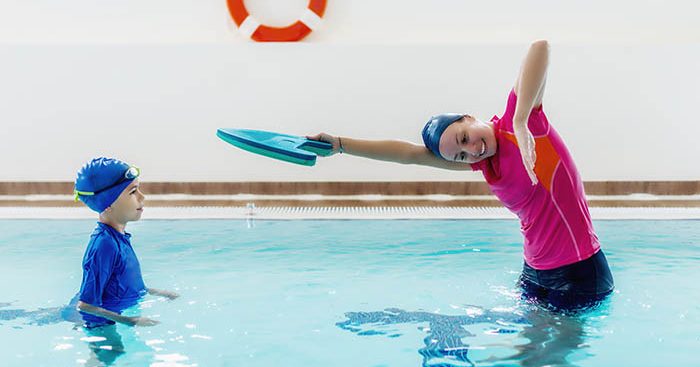If you manage a swimming school or run swimming lessons as part of your leisure operation you’ve probably already considered Direct Debit. Everyone else is doing it, right? But is Direct Debit the best collection avenue for your business? Do you even want to migrate to Direct Debit? Your first question might be…
Why should I change if I’m happy with our current set up?
Remember, Direct Debit is an option, not an obligation. That said, we do suggest you read on a little further to understand why so many operators are making the move to Direct Debit – if nothing else, the common Direct Debit queries should prove useful. In the end, you will have a pretty good idea of whether Direct Debit is right for your business.
Why are so many swimming operators choosing Direct Debit?
There are few swimming schools in the UK that don’t use Direct Debit as a collection method. Why? Direct Debits carry big benefits to customers and businesses in equal measures.
Parents using Direct Debit can spread costs easier over a 12-month period. This solves the 10-week payment problem, which sees parents, especially those with two or more children, commonly remove their children from the scheme after the first instalment.
This cost-spreading is also handy for your business because it balances out the inevitable cashflow peaks and troughs that come with upfront or annual payments.
Statistics on swimming schools using Direct Debit show that:
- Overall attrition rates sit at around 2.5% per month
- This equates to 30% loss of swimming club pupils over the year compared to many schemes that lose 60% or more of their swimmers over the year.
- Many schools are close to 100% income collection rates
Great news for customers and a predictable stream of income for your business.
What’s more important than the number of swim schools on Direct Debit?
Answer: the number of swim schools that have stayed on Direct Debit.
Once a school has migrated to this collection method very few, if any at all, change back. Reasons for this include
- Cost (Direct Debit is the cheapest payment method available in the UK)
- Ease of time and resources
- Less administrative burden
Unlike standing orders, time spent on managing incoming payments is minimal. Most operators opt for online joining to remove themselves from the sign-up as much as possible and speed up the process for customers.
The only thing left for back-of-house staff to do is to monitor incoming and cancelled payments. There’s not much to it and with less administrative faff, they can focus their attention on more important areas of the business.
Swim schools that migrate to Direct Debit generally find no reason to move away once they’re on it.
Common Direct Debit questions
How easy is it to introduce Direct Debit payments?
As with any change in process, the trick is to plan in advance. You might want to consider bringing in a specialist company to help manage the process. It’s a fairly straight-forward process, but there’s lots to think about and it helps to have an expert hand.
We recommend that you communicate with your members in advance to let them know you’re offering a new payment method. Staff training is also important. You’ll need to ensure that frontline staff are clear how the process works both online and with walk-ins.
Will I need to change to a different number of teaching weeks?
If you’re already operating to a 50-week programme, then there’s no need to change the number of teaching weeks. Simply take the cost of weeks and divide it by 12.
If you operate on anything less than a 50-week programme, then Direct Debit is a great opportunity to work towards this.
What are the benefits to the customer?
We’ve already lightly touched on this above with cost spreading. But the benefits go deeper than that.
- For starters, the smaller upfront payment will be significant in their initial decision to use you vs a competitor.
- Many organisations, particularly leisure facilities like swimming schools, channel cost-savings through Direct Debit into member discounts. Special offers and incentives for people signing up by Direct Debit will make your business even more attractive to prospects and fend off local competition.
- Direct Debit is accessible 24/7. Prospects can sign up easily and at any time from the comfort of their couch or on their commute to work. There’s no need to physically visit the organisation, although it is still an option for people nearby.
- It’s paperless. Contract documents are stored virtually, which means no storage hassle (or lost paperwork).
Why should I change if I’m happy with our current set up?
Have you had any further thoughts on this? If you’re happy with the way things are going then that’s great. But if you think Direct Debit might be the way forward for your swim school then it’s worth having a chat with the Direct Debit leisure experts to discuss how Direct Debits will fit into your business.
Phone DFC for a chat on how to implement Direct Debit for your swimming school: 01908 422 000.
Or fill in your details below to get a free member joining demo.

